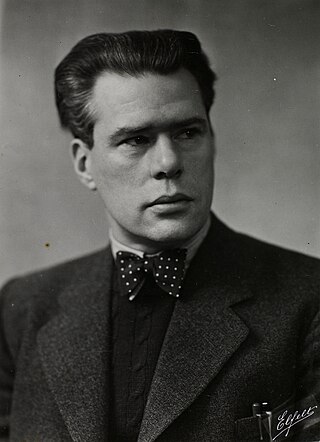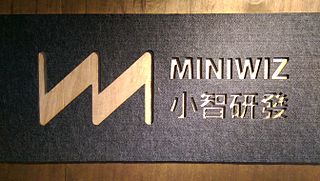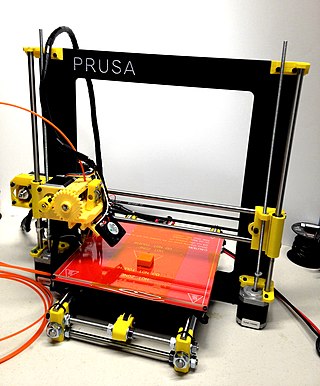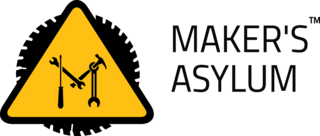
Inter IKEA Systems B.V., trading as IKEA, is a Swedish multinational conglomerate that designs and sells ready-to-assemble furniture, kitchen appliances, decoration, home accessories, and various other goods and home services. Started in 1943 by Ingvar Kamprad and currently legally headquartered in the Netherlands, IKEA has been the world's largest furniture retailer since 2008. The brand used by the group is derived from an acronym that consists of the founder's initials, and those of Elmtaryd, the family farm where he was born, and the nearby village Agunnaryd.

A desk or bureau is a piece of furniture with a flat table-style work surface used in a school, office, home or the like for academic, professional or domestic activities such as reading, writing, or using equipment such as a computer. Desks often have one or more drawers, compartments, or pigeonholes to store items such as office supplies and papers. Desks are usually made of wood or metal, although materials such as glass are sometimes seen.
Hans Jørgensen Wegner was a Danish furniture designer. His work, along with a concerted effort from several of his manufacturers, contributed to the international popularity of mid-century Danish design. His style is often described as Organic Functionality, a modernist school with emphasis on functionality. This school of thought arose primarily in Scandinavian countries with contributions by Poul Henningsen, Alvar Aalto, and Arne Jacobsen.

The open-design movement involves the development of physical products, machines and systems through use of publicly shared design information. This includes the making of both free and open-source software (FOSS) as well as open-source hardware. The process is generally facilitated by the Internet and often performed without monetary compensation. The goals and philosophy of the movement are identical to that of the open-source movement, but are implemented for the development of physical products rather than software. Open design is a form of co-creation, where the final product is designed by the users, rather than an external stakeholder such as a private company.

Ready-to-assemble furniture (RTA), also known as knock-down furniture (KD), flat-pack furniture, or kit furniture, is a form of furniture that requires customer assembly. The separate components are packed for sale in cartons which also contain assembly instructions and sometimes hardware. The furniture is generally simple to assemble with basic tools such as hex keys, which are also sometimes included. Ready-to-assemble furniture is popular with consumers who wish to save money by assembling the product themselves.

A knock-down kit is a collection of parts required to assemble a product. The parts are typically manufactured in one country or region, and then exported to another country or region for final assembly.

Open-source hardware consists of physical artifacts of technology designed and offered by the open-design movement. Both free and open-source software (FOSS) and open-source hardware are created by this open-source culture movement and apply a like concept to a variety of components. It is sometimes, thus, referred to as FOSH. The term usually means that information about the hardware is easily discerned so that others can make it – coupling it closely to the maker movement. Hardware design, in addition to the software that drives the hardware, are all released under free/libre terms. The original sharer gains feedback and potentially improvements on the design from the FOSH community. There is now significant evidence that such sharing can drive a high return on investment for the scientific community.
The Action Office is a series of furniture designed by Robert Propst, and manufactured and marketed by Herman Miller. First introduced in 1964 as the Action Office I product line, then superseded by the Action Office II series, it is an influential design in the history of "contract furniture". The Action Office II series introduced the concept of the flexible, semi-enclosed workspaces, now better known as the cubicle. All cubicle office designs can be traced back to Herman Miller's Action Office product lines.

Robin Day, OBE, RDI, FCSD was one of the most significant British furniture designers of the 20th century, enjoying a long career spanning seven decades. An accomplished industrial and interior designer, he was also active in the fields of graphics and exhibitions.

Open plan is the generic term used in architectural and interior design for any floor plan that makes use of large, open spaces and minimizes the use of small, enclosed rooms such as private offices. The term can also refer to landscaping of housing estates, business parks, etc., in which there are no defined property boundaries, such as hedges, fences, or walls.
Spectrum Industries is a small business based in Chippewa Falls, Wisconsin that designs and manufactures furniture for learning environments.

The maker culture is a contemporary subculture representing a technology-based extension of DIY culture that intersects with hardware-oriented parts of hacker culture and revels in the creation of new devices as well as tinkering with existing ones. The maker culture in general supports open-source hardware. Typical interests enjoyed by the maker culture include engineering-oriented pursuits such as electronics, robotics, 3-D printing, and the use of computer numeric control tools, as well as more traditional activities such as metalworking, woodworking, and, mainly, its predecessor, traditional arts and crafts.

Mogens Koch was a Danish architect and furniture designer and, from 1950 to 1968, a professor at the Royal Danish Academy of Fine Arts.

Miniwiz is a Taiwanese company that upcycles consumer and industrial waste into construction and consumer products. The company was founded by Arthur Huang. It is headquartered in Taiwan with offices in Milan, Singapore, Beijing, and Shanghai.
Help Scout, legally Help Scout PBC, is a global remote company which is a provider of help desk software and is headquartered in Boston, Massachusetts. The company provides an email-based customer support platform, knowledge base tool, and an embeddable search/contact widget for customer service professionals. Help Scout's main product is a web-based SaaS HIPAA-compliant help desk.

IKEA pencils are small pencils provided for free in IKEA stores worldwide. They are found in small boxes attached to poles, together with maps, measuring tapes and shopping forms. The IKEA pencil has been known for the wide variety of designs. Through the years the color changed from blue, to yellow to the natural color of wood. Despite the different colors, its dimensions have always been 7×87mm. Their common in-store application is for notetaking, with customers making note of selected items from product tags onto their notepads and visiting the self-service furniture warehouse to collect their showroom products in flat pack form, using their notes to locate their products.

Fused filament fabrication (FFF), also known as fused deposition modeling, or filament freeform fabrication, is a 3D printing process that uses a continuous filament of a thermoplastic material. Filament is fed from a large spool through a moving, heated printer extruder head, and is deposited on the growing work. The print head is moved under computer control to define the printed shape. Usually the head moves in two dimensions to deposit one horizontal plane, or layer, at a time; the work or the print head is then moved vertically by a small amount to begin a new layer. The speed of the extruder head may also be controlled to stop and start deposition and form an interrupted plane without stringing or dribbling between sections. "Fused filament fabrication" was coined by the members of the RepRap project to give an acronym (FFF) that would be legally unconstrained in its use.

Maker's Asylum is a makerspace / hackerspace which started in Mumbai back in 2013 and is now headquartered in Goa, India, inspired by Artisan's Asylum, Chaos Computer Club and other maker organisations.
Turnstone is an office furniture company based in Grand Rapids, Michigan. It is a division of Steelcase and was founded in 1993. The brand was created with the intention of reaching younger businesses with budgets too small to afford a dedicated facilities manager and offices with a small number of in-office employees. As of January 2006, the company employed 30 people.
The Martin Architecture and Design Workshop (MADWORKSHOP) is a Los Angeles, California-based non-profit foundation that offers fellowships and educational programs for artists and designers.














